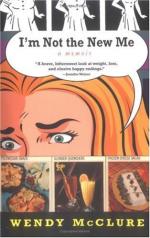“‘Our life is but a sleep and a forgetting,’” he thought grimly, “in quite a different way from what Wordsworth meant.” He had been one of the foremost in his class at college, an orator, an athlete, a favorite in society and with men. Great things had been predicted for him. Then he had fallen in love with Nettie; a professional career seemed to place marriage at too great a distance, and he had joyfully, yet with some struggles in his protesting intellect, accepted a position that was offered to him—one of those positions which never change, in which men die still unpromoted, save when a miracle intervenes. It was not so good a position for a family of six as it had been for a family of two, but he did not complain. He and Nettie went shabby, but the children were clothed in the best, as was their due.
He was too wearied at night to read anything but the newspapers, and the gentle domestic monotony was not inspiring. He and Nettie never went out in the evenings; the children could not be left alone. He met his friends on the train in that diurnal journey to and from the great city, and she occasionally attended a church tea; but their immediate and engrossing world seemed to be made up entirely of persons under thirteen years of age. They had dwelt in the place almost ever since their marriage, respected and liked, but with no real social life. If Mr. Belden thought of the years to come, he may be pardoned an unwonted sinking of the heart.
It was while indulging in these reflections that he mechanically purchased the pound of butter, which he could not help comparing with Shylock’s pound of flesh, so much of life had it taken out of him, and then found himself stepping up on the platform of the station, led by his engrossing thoughts to pass the street corner and tread the path most familiar to him. He turned with an exclamation to retrace his way, when a man pacing leisurely up and down, umbrella in hand, caught sight of him.
“Is that you, Belden?” said the stranger. “What are you doing down here to-night?”
“I came out on an errand for my wife,” said Belden sedately. He recognized the man as a young lawyer, much identified with politics; a mere acquaintance, yet it was a night to make any speaking animal seem a friend, and Mr. Belden took a couple of steps along beside him.
“Waiting for a train?” he said.
“Oh, thunder, yes!” said Mr. Groper, throwing away the stump of a cigar. “I have been waiting for the last half hour for the train; it’s late, as usual. There’s a whole deputation from Barnet on board, due at the Reform meeting in town to-night, and I’m part of the committee to meet them here.”
“Where is the other part of the committee?” asked Mr. Belden.
“Oh, Jim Crane went up to the hall to see about something, and Connors hasn’t showed up at all; I suppose the rain kept him back. What kind of a meeting we’re going to have I don’t know. Say, Belden, I’m not up to this sort of thing. I wish you’d stay and help me out—there’s no end of swells coming down, more your style than mine.”




